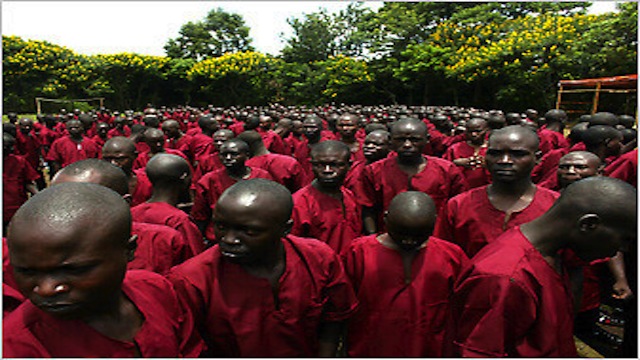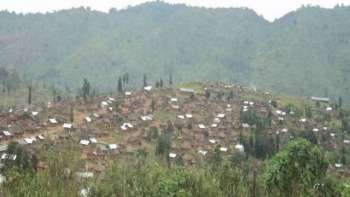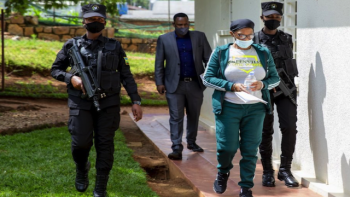The human rights situation in Rwanda has created a major concern. On June 16, 2021, the US Government issued a travel warning advising that Rwanda has reached security "Level 2: Exercise Increased Caution". The US State Department advised US citizens to contact Rwandan Development Board before travelling to several areas in the country. The warning mentions increased risks due to conflicts at the borders with Burundi to the South and the Democratic Republic of Congo (DRC) to South West and North West of Rwanda.
These conflicts have worsened the human rights situation in Rwanda and led to widespread arrests, tortures, and kidnapping of real or suspected critics of or members of opposition groups to the Government of Rwanda, led by Rwandan Dictator Paul Kagame.
In fact, over the last few years, several Rwandan activists, critics, and opposition leaders have been arrested, kidnapped, or allegedly assassinated, some times along with their relatives by Rwandan security forces or operatives. Among the most known people who were targeted by the Rwandan government, sometimes along with her relatives, are Col Patrick Karegeya, Kizito Mihigo, Diane Shima Rwigara, Deo Mushayidi, Yvonne Idamange Iryamukwiza, Gen Kayumba Nyamwasa, Paul Rusesabagina, and other well known figures, all leading critics of the Rwandan dictator Paul Kagame. One of the latest key figures in the news is Aimable Karasira.
Aimable Karasira, Former University Professor and Activist who Never Gave Up
Aimable Karasira is 41-year old Rwandan man, who until early 2020, was a professor of information technology at the University of Rwanda. He consistently dared to challenge one of the most notorious African dictatoriships in Africa and its leader, General Paul Kagame, by questionning the ruling military narratives about the events happening in the country. For this he was fired from his national university teaching positions, arrested and detained on several occasions and, according to his own and othe independent observers, under constant threats. He never gave up his activism and his public criticisms of the regime, mostly published in social media, mostly through Youtube podcasts. His Youtube podcasts have, each, garnered hundreds of thoudands of views. For that, he was arrested on May 31, 2021 and is currently in jail, in a regular prison.
Highly Guarded Secret Safe Houses and Classification of Detainees into Groups
However, behind the curtains and veils of secrecy, fear, and mistrust, there are many more individuals, not covered by news, who have been arrested or kidnapped and made disappear or of whom the whereabouts remain a mystery.
To hide the involvement of the Rwandan National Police (RNP) and Rwandan Investigation Bureau (RIB), the security situation is sometimes handled by Rwandan Development Board (RDB), which is the institution in charge of giving authorizations to foreign entities, journalists, or other independent organizations or individual seeking to access some areas.
Sources within the Rwandan National Police (RNP) and security services, including RIB, have given information to AfroAmerica Network on the situation of arrests, disappearances and tortures in Rwanda. The information shed a light on ominous dark clouds gathering on the human rights situation in Rwanda, and how the more publicized arrests, alleged assassinations and kidnappings are just a tip of an iceberg.
According to the sources, those arrested are divided into four groups:
- Common Criminals/Offenders;
- Well Known/ High Profile Critics or Opposition Leaders;
- Influential/High Value Critics or Suspected Detractors with Low Profile and High risk ; and
- Other Critics or Suspected Detractors with Limited Influence or Lower Risk.
Depending on their classification, the detainees are put into different places. Common Criminals/Offenders (1) and Well Known/ High Profile Critics or Opposition Leaders (2) are detained in public well known prisons and detention centers.
Influential/High Value Critics or Suspected Detractors with Low Profile (3) are detained in secret safe houses located in highly guarded affluent neighborhoods across the country. Sources mentioned a few areas, with one situated in what is known as Nyarutarama, one of the most affluent neighborhood in Kigali capital city.
Other Critics or Suspected Detractors who presents medium or lower risk (4) are detained in less affluent but also highly guarded safe houses. One of these safe houses is located in Muhima, a neighborhood within Kigali capital city.
High Guarded Safe Houses and Alleged Systematic Tortures and Rapes.
According to the sources, the detainees in the safe houses go though an ordeal never seen before. Women and girls are allegedly systematically and continuously raped by security guards, whereas men are tortured on all the parts of their bodies.
The contonous rapes and tortures by security guards have led to despair, to the point that some women and men have committed suicide. Others have tried to challenge the guards to the point that they were summarily executed.
AfroAmerican Network did not confirm some of the information provided by the sources and is still following.
©2021 AfroAmerica Network.

















